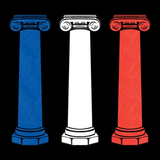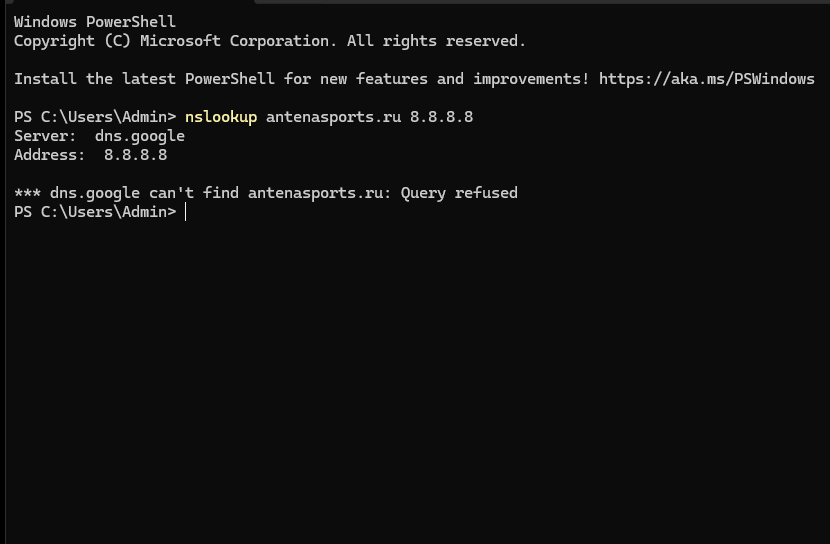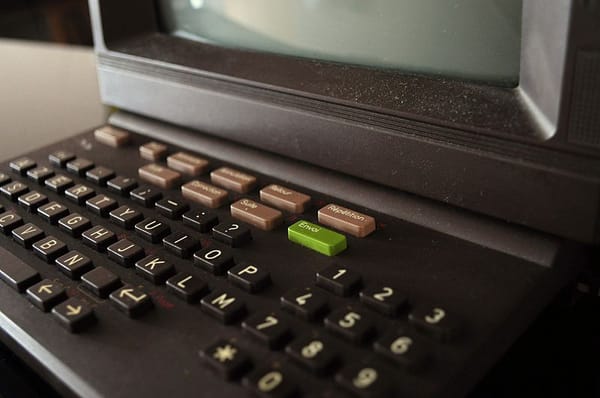Who Owns the French Media?
Although more ideologically diverse than the American media, French newspapers and television distinguish themselves in another way: their ownership by right-wing billionaires

We hear a lot about Russian interference in American politics, but what about French interference? New York-based publisher Hachette Book Group recently has provoked liberal ire by announcing the creation of a new conservative imprint headed by a Heritage Foundation fellow. Hachette Book Group is a division of Paris-based Hachette Livre, one of the largest publishing companies in the world, which is ultimately owned by the family of French billionaire Vincent Bolloré, sometimes called the French Rupert Murdoch.
Monsieur Bolloré is just one of the many billionaire media moguls who dominate the French press. Let's delve into them.
Daily Newspapers
| Newspaper | Political orientation | American equivalent | Principal owner | Owner's industry |
|---|---|---|---|---|
| Le Monde | Centrist | The New York Times | Xavier Niel | Telecom |
| Le Figaro | Right-wing | The Wall Street Journal | Dassault family | Military contracting |
| Libération | Center-left | – | Patrick Drahi | Telecom |
| Le Parisien | Centrist/apolitical | – | Bernard Arnault | Champagne and fashion |
| L'Humanité | Leftist | – | None (formally the French Communist Party) | – |
Le Monde

France's largest national daily newspaper, and probably the one Americans are most likely to have heard of. It's essentially France's New York Times.
The Le Monde Group is controlled principally by a man named Xavier Niel, as well as two other shareholders: Matthieu Pigasse (owner of Rock en Scène), and the Spanish Grupo Prisa. Madrid-based Grupo Prisa is actually principally owned by UK-based Amber Capital, which is owned by French financier Joseph Oughourlian. Another major shareholder of Amber Capital is the French media giant Vivendi, controlled by the Bolloré family, the same ones who own Hachette Livre.
Prisa owns the most read Spanish newspaper, El País, which essentially occupies the same ideological space as Le Monde, and Cadena SER, the most listened to radio station in the country. They also control major radio stations across Latin America, including in Mexico, Chile, Panama, and Colombia. In Colombia their stations actually have a majority market share for talk radio.
But back to Xavier Niel, the principal controlling force behind Le Monde. Niel is billionaire, and the 9th richest person in France. He is best known for being the founder of Free, a low-cost telecom company that's now the second-largest in France by number by users, after Orange. He also owns about a quarter of Unibail-Rodamco-Westfield, the largest real estate company in Europe. He's also a major seed investor in start-ups, and founded Station F, a major Parisian start-up incubator.
Niel made his fortune is an interesting story: he started programming Minitel servers for media groups when he was 16, and then moved into "Minitel rose": the pornographic side of Minitel. He later expanded these services IRL by investing in a chain of Parisian peep shows. Iliad, the parent company of Free, was actually originally a pornographic Minitel company that Niel bought in 1991. He was actually jailed in 2004 for procuring and misuse of company funds related to his peep shows. He was convicted of the misuse of funds but not of the pimping. Again, this is the owner of France's most respected newspaper.

Niel took control of Le Monde in 2010, when the newspaper was threatened with bankruptcy. According to a Le Monde diplomatique article, Niel once said "Quand les journalistes m’emmerdent je prends une participation dans leur canard et après ils me foutent la paix." Loosely translated, this would be: "When journalists piss me off, I buy part of their newspaper and they leave me the fuck alone." Niel denies ever having said this.
Niel is married to the daughter of Bernard Arnault, the world's richest man. Which brings to the next newspaper on my list, the one that Arnault himself owns: Le Parisien.
Le Parisien


Le Parisien is technically a regional newspaper, but because it's a Parisian regional newspaper, it's one of the most sold and most influential in France. It also has a national edition, Aujourd'hui en France. Le Parisien was originally a Gaullist newspaper, but they moved away from that stance in the 80's. These days they're known for being somewhat apolitical, and having good coverage of local news.
Le Parisien is owned by Bernard Arnault, via his company LVMH. With a wealth of over $200 billion, Arnault is the richest man in the world, although that title has fluctuated back and forth between him and Elon Musk.
Arnault's rise to become the richest man in the world is symptomatic of the way the French economy is increasingly dominated by the production of ultra-luxury products. If you don't know, that's what LVMH is. The LV is Louis Vuitton, the M is Moët (of Moët et Chandon) and the H is Hennessy. They also own champagne brands Dom Pérignon, Veuve Clicquot, and Krug, and luxury clothing brands Givenchy, Dior, Marc Jacobs, and Kenzo, jewelry brands Tiffany & Co. and Bulgari, and cosmetics store Sephora. As well as Le Parisien, they also own the ultra-liberal financial newspaper Les Échos.

Arnault is not very politically vocal in the some other French media moguls are. What he does use his financial might to do is to punish media outlets that publish negative coverage of him personally. LVMH is one of the biggest advertisers in France, and Arnault is quick to pull that advertising from any newspaper that offends him.
In 2012, when Socialist president François Hollande seemed serious about introducing a 75% tax on incomes above 1 million euros, Arnault applied for Belgian citizenship to try to escape French taxes. The center-left newspaper Libération published an incredible front page with the words "Casse-toi, riche con!" printed over a photo of Arnault holding a suitcase. This means "Get lost, rich idiot!" and is an allusion to Arnault's friend Sarkozy's famous phrase "casse-toi, pauvre con" (get lost, poor idiot) that he whispered to a farmer who refused to shake his hand. Arnault responded by withdrawing all LVMH advertising from Libération, which threw the newspaper into financial chaos. A similar fate befell Le Monde in 2017 when they made the grave error of reporting on the Paradise Papers, in which Arnault appeared prominently.
Le Figaro

France's major right-wing newspaper, Le Figaro, is – would you believe it – also owned by billionaires. Specifically, the Dassault family, owners of Dassault Aviation, one of France's largest military contractors. They are France's answer to the Wall Street Journal.
Since taking over Le Figaro in 2004, the descendants of Marcel Dassault (1892-1986) have built on their reputation for manufacturing iconic military fighters like the Mirage and the Rafale by moving into the burgeoning industry of manufacturing Islamophobic panics.

Libération

The third of the trio of newspapers of record ("journeaux de référence"), Libération was founded as a radical left-wing newspaper in 1973 by, among others, Jean-Paul Sartre. It was originally owned by its employees, paid all its workers an equal wage, and made all decisions by general assembly... and then, under financial pressure, it brought in private investors in 1981, beginning its turn to the right. This mirrored Socialist president François Mitterand's turn to the right ("tournant de la rigueur") in 1982.
By 1993 it had drifted so far from its radical left roots that its editorial board celebrated Russian president Boris Yeltsin's anti-democratic coup against his own parliament, who Libé qualified as a "red-brown pest." In 1998 Noam Chomsky wrote that Libération was "super-Reaganite, going farther than the worst American newspapers in its adherence to the propaganda of the American government."

Fast forward to today, and Libération is owned by yet another billionaire, Patrick Drahi. Drahi is a Switzerland-based Moroccan/French/Israeli/Portuguese/Kittitian telecommunications mogul. Via his Luxembourg-based company Altice, he owns SFR, Virgin Mobile, Portugal Telecom, and the Israeli telecom company Hot, as well as the British auction house Sotheby's. Drahi also owns the staunchly pro-Netanyahu Israeli TV station i24News.
L'Humanité

Founded by the great Jean Jaurès, L'Humanité was the official newspaper of the French Communist Party until 1994. It's still generally associated with the Communist Party, and has the admirable distinction of being the first newspaper we've talked about that isn't owned by a billionaire. It's owned partially by an association of its readers, partially by its employees, and partially by various people involved or formally involved in the newspaper.

News Magazines
| Magazine | Political orientation | American equivalent | Principal owner | Owner's industry |
|---|---|---|---|---|
| Le Nouvel Obs | Centrist | Harper's | Xavier Niel | Telecom |
| L'Express | Macroniste | The Economist | Alain Weill | Media |
| Le Point | Right-wing | - | François Pinault | Luxury goods |
| Marianne | Allegedly leftist, tending far-right | - | Daniel Křetínský | Energy |
| Valeurs actuelles | Far-right | The American Spectator | Safa family | Ship-building and arms-dealing |
France has a plethora of weekly news magazines, or hebdomadaires. (Yes, that's where the "hebdo" in Charlie Hebdo comes from, and no, we're not going to talk about Charlie now). Unfortunately, none of them are good. Whereas in the US, news magazines are the bastion of liberalism, in France, they are right, right, and more right. And once again, they are all owned by billionaires, except L'Express, whose owner Alain Weill ("le mini Drahi") is worth a paltry 275 million euros.

A stand-out bad magazine is Marianne, a magazine that claims to be leftist but ends up agreeing with the far-right on almost every major issue. Marianne is owned by Czech billionaire Daniel Křetínský, who owns the Czech energy giant EPH, and recently bought Britain's privatized Royal Mail. He was also Xavier Niel's partner in Le Monde until 2023.

And we would be amiss not to mentions the shockingly insane Valeurs actuelles, owned by the mysterious Lebanese Christian Safa family. The above cover about free masonry being behind Islam really says it all.
Television
| Channel | Political orientation | American equivalent | Principal owner | Owner's industry |
|---|---|---|---|---|
| CNews | Far-right | One America News Network | Vincent Bolloré | Media, manufacturing, shipping |
| BFMTV | Far-right | Fox News | Saadé family | Shipping |
| LCI | Right-wing | CNN | Martin Bouygues | Telecom, construction, real estate |
| France Info | – | – | The French State |
There are four major 24-hour news channels in France: in order of audience, CNews, BFMTV, LCI, and France Info. First, let's talk about the biggest, and the worst: CNews. Which means it's finally time to get back to Bolloré.
CNews

CNews is the flagship station of the Canal+ group, which also owns a number of cable channels, and the major film studio StudioCanal. Like Hachette Livre, it is owned by Vivendi, one of the largest media companies in the world, and ultimately controlled by the family of Vincent Bolloré, the 8th richest billionaire in France.
Vivendi is a diverse media company. Technically it was founded by Napoléon III as the Compagnie générale des eaux, the General Water Company. Until 2021 it owned Universal Music, the biggest music company in the world. Bolloré and Vivendi together are still Universal's largest shareholders. They also make electric batteries, and until recently, Bolloré Africa Logistics operated 42 ports across Africa, although that division has now been sold off to Mediterranean Shipping Company.
Vincent Bolloré is now largely retired from his industrial activities and from Vivendi, but he remains probably the most important force on the French right, and that's largely because of CNews, as well as his radio station, Europe 1. He has a Murdoch-esque grip on the French right and on the French media in general.
CNews has taken France by storm in the past few years, and has swiftly overtaken BFMTV to become the most-watched news channel in France. Their editorial stance can only be described as ultra-far-right. They almost single-handedly created the phenomenon of Éric Zemmour, the man who tried to outflank Marine Le Pen from the right in 2022.
BFMTV

Before there was CNews to take the crown as France's Fox, there was BFMTV, still the second most-watched news channel. It is owned by a billionaire family of Lebanese Christian origin (different than the the one that owns Valeurs actuelles), the Saadé family, via their company CMA CGM (Compagnie maritime d'affrètement - Compagnie générale maritime), the third largest shipping container company in the world.
LCI/TF1

LCI stands La chaîne info, which just means "the news channel." In a refreshing break from CNews and BFMTV, LCI is also very right wing. LCI is the sister channel of TF1 (or "La Une"), the most watched TV channel in France, and in Europe. TF1 was originally publicly owned until it was privatized in 1987. Now it's owned by, also refreshingly, a billionaire: Martin Bouygues and family, via the Bouygues Group. Bouygues is a huge conglomerate that also owns Bouygues Construction, Bouygues Real Estate, and Bouygues Telecom.
Bouygues is the third major telecom billionaire we've talked about, after Le Monde owner Xavier Niel of Free and Libération owner Patrick Drahi of SFR. In France, your options are whether you want to read or watch news made by a telecom magnate, or a shipping magnate. Although there is a third options...
France Info

Which brings us, finally, to the alternative: the state-owned media. (There's actually one other major television group, Groupe M6, which is owned by RTL aka Radio Television Luxembourg, which is owned by Bertelsmann, the holding company of the German billionaire Mohn family... but I'm sick of talking about billionaires!)
France Info is a channel of the state-owned France Télévisions, which has a 29% market share spread over its five channels. The French state media – also including the international channel France24, the many stations of Radio France, and the French-German co-produced ARTE – is a collection of broadcasting gems that the US could only dream of. Unfortunately, it's under attack. For most of its history it was funded principally by a redevance -- a television license – of 138 euros per year per household. That was abolished in 2022. The Nationally Assembly provisionally funded the public broadcasters through 2025, but after that a new funding model will have to be set up. With the far-right National Rally saying they want to privatize at least some of the system, what it's future holds is anyone's guess.




